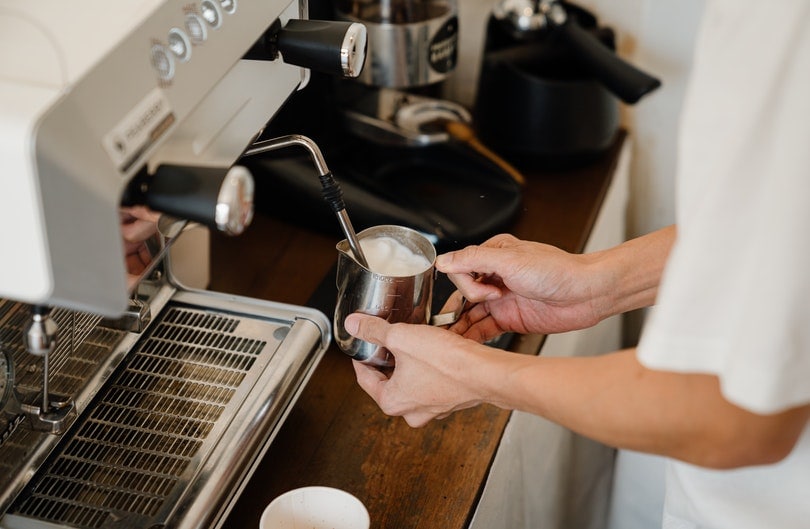
European coffee culture is widely known and taken very seriously. However, coffee has not always been a part of European culture. In fact, coffee was first introduced to Europe in the 16th century. Despite facing initial suspicion as a potential threat to Christian society, it eventually gained popularity and significantly impacted European society. By the 17th century, it was widely available across the continent!
But that’s not the only impact coffee had in Europe. Read on to discover more interesting facts and frequently asked questions about one of the world’s most popular beverages.

Fascinating Facts About Coffee’s Introduction to Europe
1. Coffee Was Introduced in the 16th Century
Coffee was introduced to Europe in the 16th century, and despite initial resistance, it eventually became a popular beverage across the continent. Over the years, Europeans embraced coffee and integrated it into their daily lives, making it a significant part of their culture. It even replaced alcohol as their beverage of choice for breakfast!

2. Coffee Had a Significant Impact on European Society
Coffee had a significant impact on European society, particularly during the Enlightenment. Coffeehouses became hubs of intellectual discourse and knowledge-sharing, fostering the exchange of ideas and fueling the growth of European intellectualism.
3. Coffee Trade & European Economy Was Forever Changed
The coffee trade greatly affected Europe’s economy, especially in France, the Netherlands, and England. Coffee plantations were set up in territories like Brazil, leading to increased trade and economic growth related to the coffee industry.
4. Coffee Played an Important Role in the Global Economy
Coffee continues to play a vital role in the global economy, providing employment to approximately 125 million people and being a significant influence on international trade.1 The production, distribution, and sale of coffee impact economies around the world.

5. Coffeehouses Helped Encourage the Enlightenment
Coffeehouses played an important role in the Enlightenment, where they were known as “penny universities” because they were affordable and accessible to people from all walks of life. These gathering places facilitated the exchange of ideas and knowledge, contributing to the intellectual and cultural growth of Europe.

Other Interesting Coffee Facts
6. Coffee Has a Rich History
Dating back to Ethiopia in the 15th century, coffee’s rich history involves Sufi Muslims consuming it as part of religious rituals. As knowledge of the beverage spread, coffee became an increasingly popular drink in various regions of the world, not just in Europe.
7. Coffee Comes From the Coffea Plant
The Coffea plant, from which coffee is derived, is native to the highlands of Ethiopia. These plants produce the coffee cherries, which contain coffee beans we consume today.

8. The Legend of Kaldi Explains the Discovery of Coffee
Legend claims that a goat herder by the name of Kaldi was the first to discover the energizing effects of coffee berries after observing his goats become more energetic after consuming them. This discovery marked the beginning of coffee’s widespread use as a stimulating beverage.
9. Arab Coffee Cultivation Paved the Way for Coffee Across the World
Arabs were the first to cultivate coffee on a larger scale, and coffeehouses became important social and cultural centers in the Arab world. As the cultivation of coffee expanded, Arab traders introduced the beverage to new regions, eventually reaching Europe.
10. Coffee Is Part of the Islamic World
Coffee spread rapidly throughout the Islamic world, including Turkey and Persia, where it became an essential element of cultural and religious customs. This widespread adoption solidified coffee’s place in the world as a significant and influential beverage.


FAQ
Who introduced coffee to the Europeans?
The introduction of coffee to Europe is a complex history, and there are different accounts of how it exactly happened. Some believe Arabs were responsible for introducing coffee to Europe, while others maintain Venetian merchants brought it over.
What did Europeans drink for breakfast before coffee?
As shocking as it may sound, Europeans consumed alcohol for breakfast before the introduction of coffee in society. Morning beverages often consisted of wines or beers!
Who introduced coffee to Europe in 1615?
This is the year that many believe was the first time Europe discovered coffee via Venetian merchants and traders.

How did coffeehouses become popular during the Enlightenment?
Coffeehouses became popular during the Enlightenment because they were affordable and accessible places for people to gather, discuss new ideas, and share knowledge.
What did Europeans originally call coffee?
Europeans may have originally called coffee “Arabian wine” or “Turkish wine.” However, there is also a record of a European botanist referring to coffee as “chaube” all the way back in 1573.

Conclusion
Coffee has had a tremendous impact on European culture and society over the centuries. From its origins in Ethiopia to its spread throughout Europe, coffee has shaped our cultural practices and provided us with economic opportunities.
Ever since then, coffee has risen to become a mainstay in Europe and beyond—and it’s unlikely to lose its standing as one of the most favored drinks in the world!
- Related Read: When Was Coffee Introduced to Asia? Facts & FAQ
Featured Image Credit: nerudol, Shutterstock















